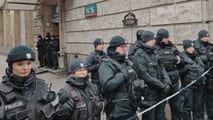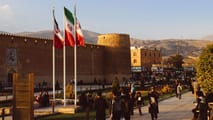On 3 July 2015, the UN Human Rights Council (HRC) adopted with 29 votes in favor[1], 14 against[2] and 4 abstentions[3] a Resolution on the Protection of the Family.
The purpose of this resolution is to reaffirm that the family is the natural and fundamental group unit of society and that it is entitled to protection by society and the State. States are urged to create an environment to strengthen and support family. It also aims at closing the existing gaps in the protection of family. The previous Resolution on the Protection of the family was adopted by the HRC in June 2014.
During the debate in the HRC, two visions about family confronted: an objective one, based on reality and a subjective one, based on ideology and subject of “inclusive and democratic debate”. Therefore, for some States, those that voted in favor of this resolution, “family” is the nucleus, the natural, the fundamental and the most important unit of society. Family is a stable environment, the place where children can grow; it has the primary responsibility to protect and educate children. Family sustains communities. It plays a crucial role in preserving the values of the society and the cultural, societal and moral heritage. The task of the family is to continue humanity in the broadest sense of the word, as it acted as a link between generations. Those countries believe that if family is strengthened, all society can benefit from that. They also believe that family laid down the foundation of human capital development and it installed in people their culture and heritage. This is why, they consider that family deserves protection, promotion and must be strengthen by the State and society.
For other States, those that voted against this resolution, “families” exist in various forms (“diversity of families”) and they can “evolve”. Their composition (a man and a woman) is irrelevant. They affirm that “families constitute natural parts of societies” and that “the primary responsibility of the State is towards the individual”. Therefore, the State has “to ensure that the rights of individuals within the family are protected” and not family as a unit. Those countries call for the development of “inclusive policies” to support the role of various forms of families. They denounce the family as rights holder as inconsistent with the idea of individual rights. Cultural traditions are considered a threat. Those countries affirm that protecting family is failing to protect gender equality.
Amendments were proposed to the initial text. For example, South Africa proposed, without any success, a draft amendment recognizing “various forms of families”. Norway, requested, the deletion of language that referred to morals and value systems, also rejected. Uruguay asked successfully the recognition of the rights of the children as a whole and not to put the rights of the parents above those of the children.
More concretely, in this resolution on the protection of the family, the HCR:
Reaffirms what family is and what is its role:
4. Reaffirms that the family is the natural and fundamental group unit of society and is entitled to protection by society and the State;
6. Recognizes that the family, while respect for the rights of its members is ensured, is a strong force for social cohesion and integration, intergenerational solidarity and social development, and that the family plays a crucial role in the preservation of cultural identity, traditions, morals, heritage and the values system of society;
Indicates the situation of family today:
8. Recognizes that the family unit is facing increasing vulnerabilities;
16. Notes that single-headed households, child-headed households and intergenerational households are particularly vulnerable to poverty and social exclusion;
17. Resolves to pay particular attention to family units headed by women and children, while bearing in mind that a considerable proportion of households worldwide are headed by women and many other households are dependent on female income, and that female-maintained households are very often among the poorest because of wage discrimination, occupational segregation patterns in the labour market and other gender-based barriers;
Reaffirms the rights of the child:
10. Reaffirms the need to promote and protect the rights of the Child, and in this regard calls upon States to render appropriate assistance to parents and legal guardians in the performance of their child-rearing responsibilities in the best interests of the child, bearing in mind that a child should grow up in a safe and supportive family environment and giving high priority to the rights of the children, including to survival, protection and development.
Requests the recognition of the contribution of women:
15. Regrets that women’s social and economic contributions to the welfare of the family and the social significance of maternity and paternity continue to be inadequately addressed and that women continue on many occasions to bear a disproportionate share of household responsibilities and the care of children, the sick and elderly, and in this regard emphasizes the need to consistently address such imbalances and to ensure that maternity, motherhood, parenting and the role of women in procreation is not a basis for discrimination nor for restricting the full participation of women in society;
Affirms the rights of disabled children and persons:
18. Emphasizes that States should ensure that children with disabilities have equal rights with respect to family life with a view to realizing these rights, and to prevent concealment, abandonment, neglect and segregation of children with disabilities, and that States should undertake measures to provide early and comprehensive information, services and support to children with disabilities and their families;
19. Stresses that persons with disabilities and their family members should receive the necessary protection and assistance to enable families to contribute towards the full and equal enjoyment of the rights of persons with disabilities, and that States should, where the immediate family is unable to care for a child with disabilities, undertake every effort to provide alternative care within the wider family, and failing that, within the community in a family setting;
Invites States to take concrete measures:
23. Urges States, in accordance with their respective obligations under international human rights law to provide the family, as the natural and fundamental group unit of the society, with effective protection and assistance and encourages States in this regard to undertake, as appropriate and to the maximum of their available resources, measures (…).
Asks the High Commissioner:
32. Requests the High Commissioner to prepare a report on the impact of the implementation by States of their obligations under relevant provisions of international human rights law with regard to the protection of the family (…).
[1]Algeria, Bangladesh, Bolivia, Botswana, China, Congo, Côte d’Ivoire, Cuba, El Salvador, Ethiopia, Gabon, Ghana, India, Indonesia, Kazakhstan, Kenya, Maldives, Morocco, Namibia, Nigeria, Pakistan, Paraguay, Qatar, Russian Federation, Saudi Arabia, Sierra Leone, United Arab Emirates, Venezuela, and Viet Nam.
[2] Albania, Estonia, France, Germany, Ireland, Japan, Latvia, Montenegro, Netherlands, Portugal, Republic of Korea, South Africa, United Kingdom of Great Britain and Northern Ireland, and United States of America.
[3]Argentina, Brazil, Mexico, and The former Yugoslav Republic of Macedonia.













